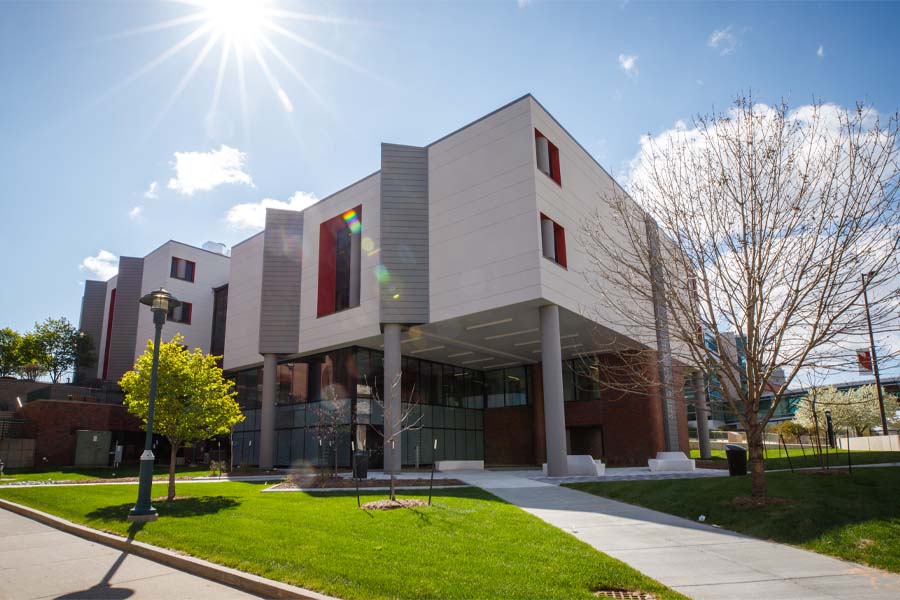Private Loans
The Office of Financial Aid may not be able to fund your entire cost of attendance with grants, scholarships, and federal student loan aid. You have been awarded an OTHER PRIVATE LOAN as a "placeholder" award to indicate your eligibility for a private loan.
The Other Private Loan option most often requires a credit-worthy co-signer for approval. Students are strongly encouraged to apply with a co-signer to ensure the lowest interest rate possible on the approved loan. The loan application will require a credit check on both the borrower and the co-signer.
- If you choose to proceed with this loan offer, please visit the UNMC Fast Choice Alternative Loan link and follow the site guidance for choosing a private lender and completing their loan application.
- Your lender will send your loan application to UNMC for eligibility verification of your requested loan amount and loan certification.
- We encourage all students to complete the Borrowing Essentials tutorial, provided on the Fast Choice web page, to ensure you understand the lender’s interest rate calculations, the difference between fixed and variable interest rates, and the lender’s repayment benefits/requirements, in-school enrollment deferment requirements, etc.
- When we receive your loan application, we will post the value of your requested loan amount as the amount accepted on your MyRecords financial aid award screen. The ‘other’ loan will be removed from your award screen and replaced with your lender of choice loan (ex: Discover, SallieMae, etc) and the amount requested. When the lender name/amount appears on your MyRecords award screen, your loan has been approved and certified with your lender of choice.
- We will set up the loan in accordance with your program’s academic year disbursement calendar (fall/spring; fall only; spring only). Our office will send you a new Award Notification to advise you that your award package has been updated. At that time, if the loan disbursement set up is not satisfactory to meet your term costs, please advise our office to modify the disbursement set up. Your request to revise the disbursement amounts must be made in writing. Our office will not adjust an award amount or disbursement date based on a phone call.
- Alternative loan funds are received at UNMC via ACH (electronic funds transfer). Your lender may provide a date when the funds will be delivered to UNMC. Please allow 3 – 5 business days for the loan process to run its course, from the receipt of funds in our office, to the issuance of any credit refund balance that may result with the loan disbursement.
Private student loan lenders are required to follow the federal Truth in Lending Act (TILA) regulations. These regulations require lenders to provide borrowers with clear disclosures and allow borrowers a 14 day right to rescind after the school certifies a private loan. Disclosures will be sent to the student’s email address provided on the application so please carefully review all disclosure notifications. Students are encouraged to complete the private loan application process at least one month prior to the start of the semester to allow ample processing time and the right to rescind period.
If you have questions regarding the Alternative Loan process, please email finaid@unmc.edu and your email will be directed to the financial aid staff person responsible for processing alternative loan applications. You may also contact us at 402-559-4199.
Residency Relocation Loans
The costs associated with interview travel and relocation are not required for graduation and cannot be funded with federal student aid. If you are going to require student loan help to fund these costs, your only option will be a private residency/relocation loan. The residency/relocation loan is between you and the lender of your choice. The Office of Financial Aid is not involved in this process.
UNMC cannot recommend a lender or prepare a preferred lender list. We encourage all students to take the Borrowing Essentials tutorial, provided on the Fast Choice web page, to ensure you understand the lender’s interest rate calculations, the difference between fixed and variable interest rates, and the lender’s repayment benefits/requirements, postponement requirements, etc.
